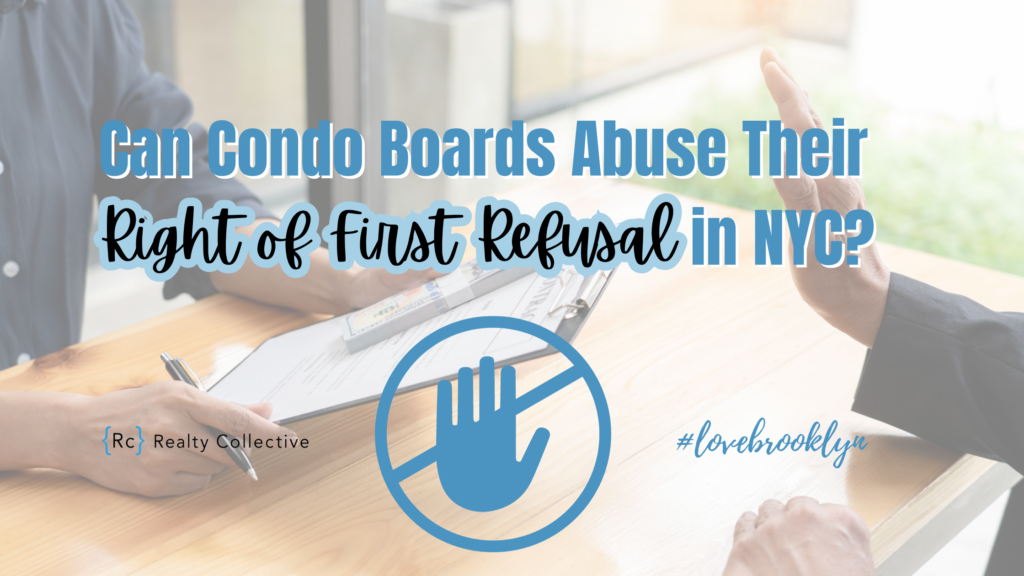Can Condo Boards Abuse Their Right of First Refusal in NYC?
Nov 12, 2023

Though we wish it weren’t the case, we’re hearing about more instances where condo boards
have abused their right of first refusal to effectively discourage a potential buyer from
completing their purchase. A condo board typically has 30 days to respond with a right of first
refusal after a condo purchase application has been submitted. However, if the condo board requests additional information, say on day 28, the 30 day time limit starts all over again.
This is the case even if the condo board maliciously asks for something trivial or for something
that was not even in the original condo application. By doing this, they can frustrate a
potential condo buyer and perhaps even force the buyer to abandon the deal due to a rate
lock expiring or just pure frustration.
Here is an interesting real world example of condo boards abusing their right of first refusal in New York City;
A wealthy finance executive recently had a divorce with his wife. The wife was now in contract
to buy a luxury condo to live in with their children. Even though it was an all cash purchase
and the husband made a tremendous amount of money, the condo board wanted to be
difficult because the wife had no income of her own. As a result, they came back around 25
days after the condo application had been submitted to ask if the ex-husband could co-sign
the purchase. The husband grudgingly agreed since it was for his wife and kids after all.
However, after another 20 days or so the condo board came back again and asked to see the
husband’s tax returns. This was egregious because the husband was well known and very
wealthy, and the condo board knew the husband’s name by now. The husband was furious but
ultimately agreed to share his tax returns which were several hundred pages in length. Then
after another 20 days or so the condo board asked to see if the husband could put several
years of common charges into escrow. This was the last straw, the buyer’s lawyer sent in a
letter threatening to sue if the board didn’t dutifully make a decision on their right of first
refusal immediately.
This ultimately got the condo board to issue a waiver of their right of first refusal; however, it
should be noted that if you decide to litigate you had better be able to follow through on it. If
not, your bluff will be called and you will lose all leverage. Also remember that condo boards
are usually not afraid to litigate as they are not using their own funds, but are rather being
funded through a potentially unlimited levy on all of the fellow condo owners.
So, Have Condo Boards Ever Exercised Their Right of First Refusal in NYC?
Yes, although the chances of a condo board being able to scrape together enough funds to purchase the average $2 million New York City condominium are exceedingly slim.
The only case we’ve heard of a condo board actually exercising its right of first refusal was for an Upper Manhattan condo that was priced just under $1 million so buyers could avoid the Mansion Tax in NYC. The buyer put an offer in of $920,000 and for some reason the board was able to scrape together the funds to buy the apartment. Perhaps the board felt that the price was too low, or that it was undervalued for some reason. The buyer ended up raising his offer to $990,000 in order to stave off this exercise of the condo board’s right of first refusal (remember that the condo board can only exercise it and buy it at the same terms as the prospective buyer of a condo unit).
However, the condo board raised the funds and exercised its right of first refusal anyway. In the end, the condo board ended up flipping the condo a few months later for around $1,100,000. However, with closing costs in NYC as high as they are, the condo board did not make a profit. Talk about a strange exercise in futility! What a waste of time and energy by that condo board!












